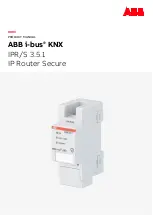
www.ti.com
7.6.1.2
Module State Emulation Events
7.6.1.3
Local Reset Emulation Events
7.6.1.4
External Power Control Pending Event
7.6.2 Interrupt Registers
7.6.3 Interrupt Handling
PSC Interrupts
A module state emulation event occurs when emulation alters the state of a module. Status is reflected in
the EMUIHB bit in the MDSTAT[x]. In particular, a module state emulation event occurs under the
following conditions:
•
When inhibit sleep is asserted by emulation and software attempts to transition the module out of the
enable state
•
When force active is asserted by emulation and module is not already in the enable state
A local reset emulation event occurs when emulation alters the local reset of a module. Status is reflected
in the EMRST bit in MDSTAT[x]. In particular, a module local reset emulation event occurs under the
following conditions:
•
When assert reset is asserted by emulation although software de-asserted the local reset
•
When wait reset is asserted by emulation
•
When block reset is asserted by emulation and software attempts to change the state of local reset
An external power control pending event occurs during the power domain power on or power off
sequences. The PSC triggers this interrupt as an indication that it is ready for software to apply or remove
power during a power on or power off transition sequence, respectively. Status for this interrupt is
reflected in the EPCx bit in EPCPR. See
for more information.
The external power control pending event occurs when the PSC is pending confirmation that power was
applied to or removed from the power pins. See
for more information.
The PSC interrupt enable bits are: the EMUIHB bit in PDCTLx, the EMUIHB bit in MDCTL[x], the
EMURSTIE bit in MDCTL[x], and the EPx bit in EPCPR.
Note:
To interrupt the ARM, the ARM’s power and sleep controller interrupt (PSCINT) must also be
enabled in the ARM interrupt controller. See
for more information on the ARM’s
power and sleep controller interrupt and the ARM interrupt controller.
The PSC interrupt status bits are the Mx bit in MERRPR0, the Mx bit in MERRPR1, the Px bit in PERRPR,
the EMUIHB bit in PDSTATx, the EMUIHB bit in MDSTAT[x], the EMURST bit in MDSTAT[x], and the EP
bit in EPCPR. The status bits in MERRPR0, MERRPR1, and PERRPR are read by software to determine
which power domain or which module has generated an emulation interrupt, and then software can read
the corresponding status bits in PDSTATx and MDSTATx to determine which event caused the interrupt.
The PSC interrupt clear bits are the Mx bit in MERRCRx, the Mx bit in PERRCRx, and the EPx bit in
EPCCR.
The PSC interrupt evaluation bit is the ALLEV bit in INTEVAL. When set, this bit forces the PSC interrupt
logic to re-evaluate event status. If any events are still active (if any status bits are set) when the ALLEV
bit in INTEVAL is set to 0x1, the PSCINT is re-asserted to the ARM interrupt controller. Set the ALLEV bit
in INTEVAL before exiting your PSCINT interrupt service routine to ensure that you do not miss any PSC
interrupts while the ARM interrupts are globally disabled.
See
for complete descriptions of all PSC registers.
Handle the PSC interrupts as described in the following procedure:
First, enable the interrupt.
SPRUFB3 – September 2007
Power and Sleep Controller
69
















































